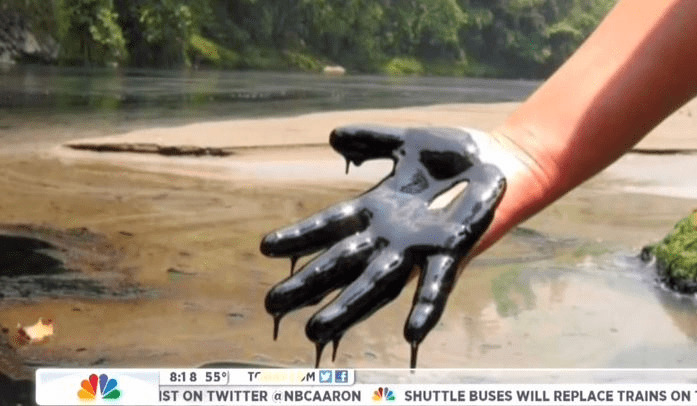When a large oil deposit – almost a billion barrels — was discovered under Ecuador’s Yasuni National Park in the Amazon, it seemed to foretell yet another disaster for Earth’s disappearing plants and animals. The Ishpingo-Tambococha-Tiputinia (ITT) area of Yasuni is extraordinarily rich in biodiversity, a world Biosphere Reserve supporting more tree species in each hectare (~2.5 acres) than all of North America as well as an extraordinary diversity of other plants and animals. Many globally threatened mammal species shelter in the forest, which has already suffered substantial damage in some areas from oil exploration.
But there was some hope. In 2007 Ecuador’s President Rafael Correa proposed at a UN General Assembly meeting to ban oil exploration in the Yasuni-ITT, in return for a payment by the international community of $3.6 billion over 13 years, one-half of the estimated value of the oil that would be left in the ground. It looked like a win-win solution. Ecuador would gain half the cash value of about a fifth of its known oil reserves – and it would avoid damage to the ecotourism value of the forest, to the lives of several indigenous groups that live there, and to the potential sustainable timber production and harvest of other forest products. The dollar value of the latter losses are difficult to estimate, but certainly are more than $1 billion. And, of course, Ecuador would be paid not just for preserving a natural heritage of all humanity, but also for keeping over 400 million tons of the greenhouse gas carbon dioxide out of the atmosphere. That benefit could help prevent the Yasuni from being destroyed by climate disruption as well as saving Ecuador an estimated $3.1 billion annually in damages from flooding of the port of Guayaquil alone, to say nothing of the costs of other possible climate-related disasters.
All of these benefits, however, now are likely to be foregone. In August of 2013 President Correa announced abandonment of the plan because donations to the Yasuni-ITT trust fund had fallen far short of expectations. Actual donations amounted to only $13 million of the planned $3600 million, less than one-half of one percent of the goal.
In my view, this failure represents utterly unethical behavior by the international community. Rich countries have contributed the vast majority of the greenhouse gases added to the atmosphere since the industrial revolution and have a strong moral responsibility to take and finance remedial steps. The rich also have a large share of responsibility for launching the sixth great extinction crisis, which now threatens both the only known living companions humanity has in the universe but also the ecosystem services upon which rich people and the rest of humanity are utterly dependent. Those services include maintaining a livable climate, supplying fresh water, recycling nutrients essential to agriculture and forestry, pollinating crops, controlling crop pests, flood control, and provision of esthetic resources. Thus the failure of governments of rich nations, including the vastly overpopulated and environmentally destructive United States, to make substantial donations to Ecuador is not only highly unethical, but also deeply stupid and self-destructive. After all, a 3 cents/gallon gasoline tax in the United States alone would raise the money requested by Ecuador in one year. And the U.S. is already experiencing substantial losses related to climate disruption, and is on track to suffer much more.
One can hardly blame President Correa for taking this step, even though Ecuador will suffer considerably if destruction of the Yasuni proceeds. But the political pressures on him not to turn his back on an “easy” source of wealth are doubtless strong in a country whose citizens are roughly one-sixth as rich as those of the United States. Still there may be hope of a reversal, since the vast majority of Ecuadoreans are opposed to drilling in the Yasuni, and various Ecuadorean groups are strongly opposed to Correa and place much of the blame for failure of the scheme on him. But at the moment the reversal is a symbolic disaster for the world, apparently ending one of the most promising experiments in international cooperation to avoid a collapse of civilization.
MAHB-UTS Blogs are a joint venture between the University of Technology Sydney and the Millennium Alliance for Humanity and the Biosphere. Questions should be directed to joan@mahbonline.org.
The views and opinions expressed through the MAHB Website are those of the contributing authors and do not necessarily reflect an official position of the MAHB. The MAHB aims to share a range of perspectives and welcomes the discussions that they prompt.
